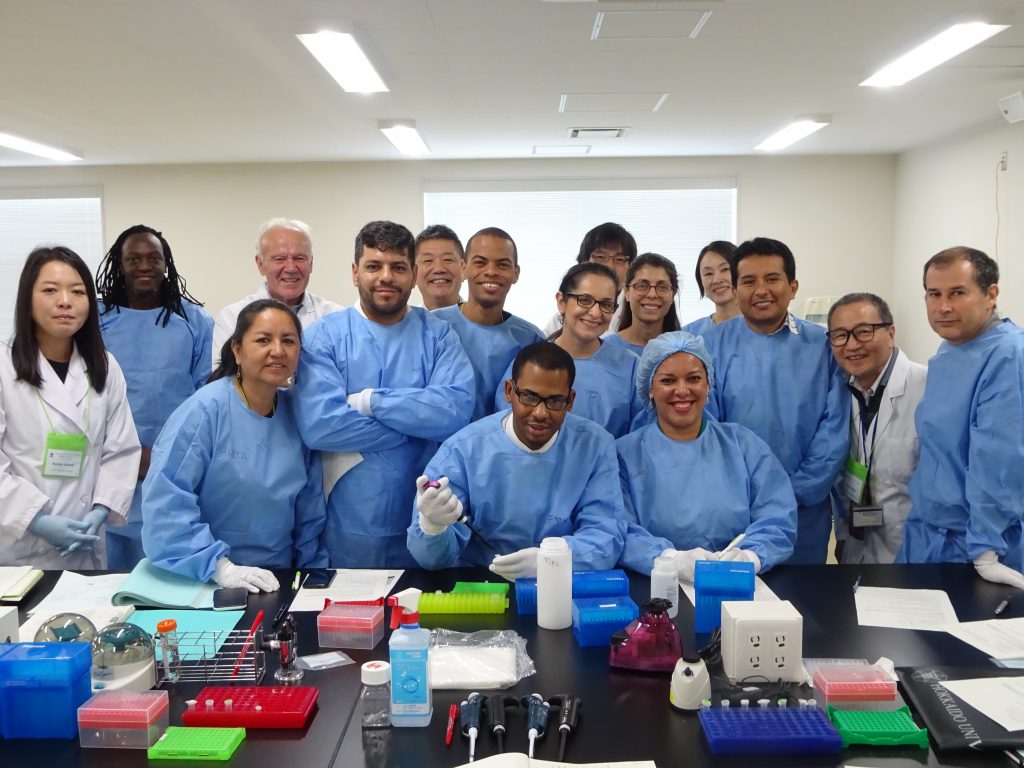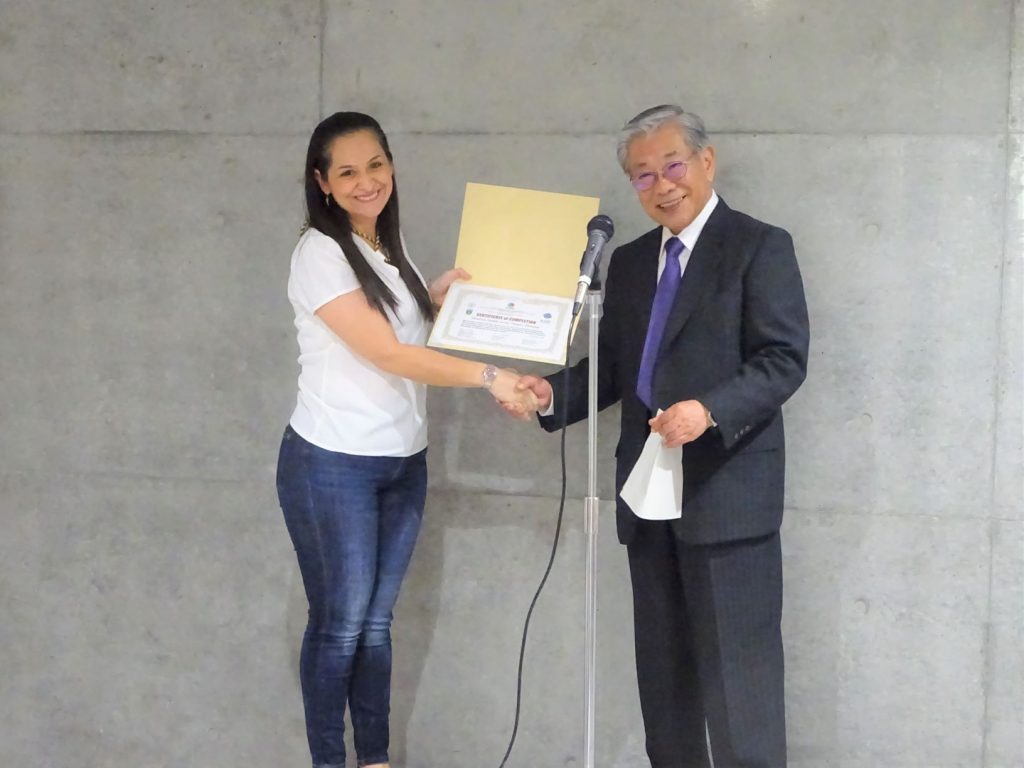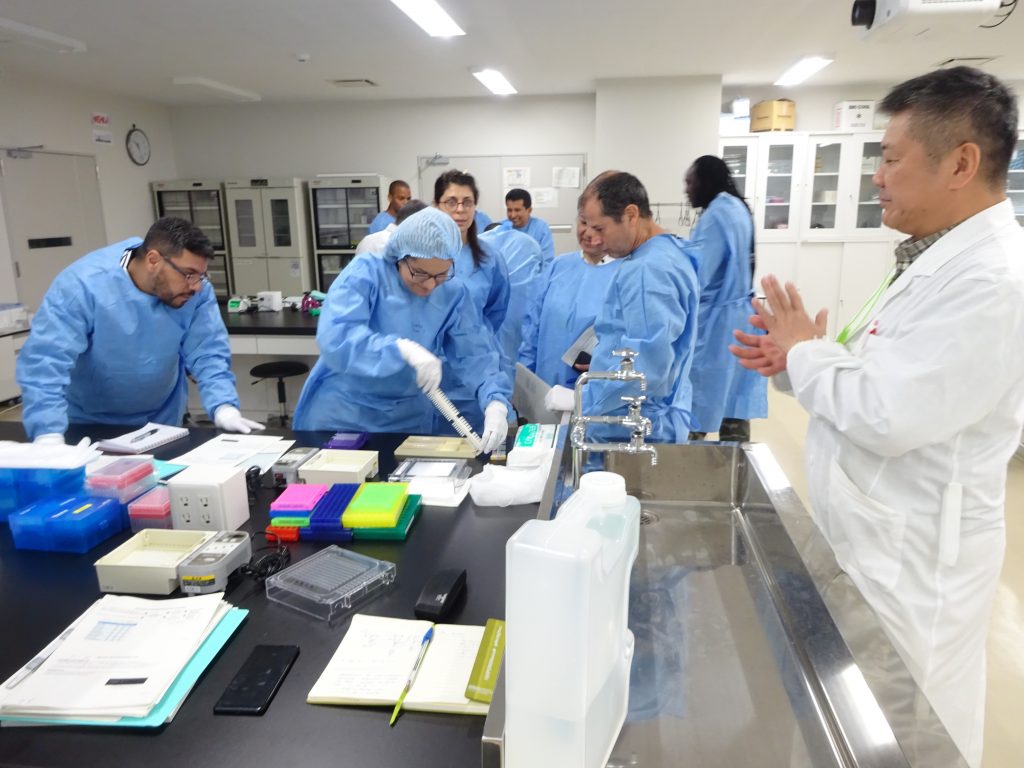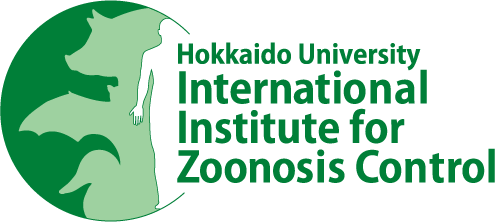November 29,2019
Training Course of Infection, Immunity, Diagnosis and Pathogenesis of Virus Pathogens
A training course entitled “Infection, Immunity, Diagnosis and Pathogenesis of Virus Pathogens” was held at the Research Center for Zoonosis Control (CZC), Hokkaido University from September 19 to October 2, 2019. It was attended by 9 invited participants including researchers and students coming from 9 countries in South and Central America: Argentina, Bolivia, Brazil, Costa Rica, Cuba, Jamaica, Mexico, Panama and Peru.
Date: Thursday, September 19-Wednesday, October 2, 2019
Venue: Practical Room, Research Center for Zoonosis Control, Hokkaido University (Kita 20, Nishi 10, Kita-ku, Sapporo)
Host: Global Station for Zoonosis Control, GI-CoRE, Hokkaido University
Co-Host: Research Center for Zoonosis Control
Trainers: Dr. Stephen Baker / University of Queensland, Dr. William Hall / Hokkaido University and University College Dublin, Drs. Gabriel Gonzalez, Yongjin Qiu, Kyoko Hayashida, Keita Matsuno, Yasuko Orba, Junya Yamagishi, Ryo Nakao, Yuki Eshita and Hirofumi Sawa / Hokkaido University
Course Schedule:
Please click the link below.
Training course schedule


The training course was implemented with partnership support from CZC. The objectives of the training were to better understand the pathogenesis and the control of zoonotic viral infections, to review modern diagnostic methods, and to establish international collaborative research networks between Hokkaido University and countries in South and Central America for arboviral and other viral infectious diseases.
It consisted of the following modules:
1. Collection of mosquitoes and ticks.
2. Isolation of DNA and RNA from arthropods, animal tissues and cells.
3. Detection of arboviral genomes by PCR, RT-PCR and real-time-PCR.
4. Sequencing of PCR products by conventional capillary sequencing.
5. Sequencing of PCR products by MinION (portable next generation sequencer).
6. Basic bioinformatics for the analysis of viral genomes obtained by conventional and MinION approaches.
In addition to the above practical exercises, the trainees gave presentation and insights on the current situation of the research activities in their countries. Apart from taking part in a field exercises that involved ticks sampling around Takino and Lake Shikotsu , the trainees toured the various facilities at CZC facilities. On the last day, a discussion between the trainees and trainers took place in order to evaluate the positive and negative points of the training. The trainees sounded very satisfied with the training and have declared that the training met their expectations.
All trainees successfully completed the training course and were awarded with certificates. Having attended this training course, they have acquired new technical and analytical research skills that will desire to enhance their future scientific endeavors and we also hope that the training has contributed to the establishment of international collaborative research networks.



For further details, please contact:
GI-CoRE Global Station for Zoonosis Control
TEL: +81-11-706-9555
Mail: gsz@oia.hokudai.ac.jp












